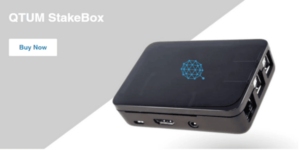8 Best Wallets For Staking Cryptocurrencies

Cryptocurrency staking is gaining attention among crypto investors. One of its major advantages is that it enables holders to generate an income passively. The crypto industry is a battle, and everyone wants to win. In the context of stacked pools and wallets, more and more exchanges are also joining the staking trend. The surge in staking growth can be gauged by the latest Binance Research report, which reports that the total funds at stake are over $6.4 billion.
What Is A Cryptocurrency Staking?
Staking is a method of earning profit from cryptocurrency investments by holding coins in a certain wallet for a specific period. It is like the idea of an interest-paying bank account. But instead of receiving interest, cryptocurrency holders are rewarded with newly generated coins.
There is a complicated way behind why and how it works. But to keep it simple, you can think of it as earning for “keeping cryptocurrencies in your wallet.” Initially, staking required participants to complete a few steps and configuration. Now, it has become very easy. You don’t need to transfer your cryptocurrency to any crypto address. Just hold assets in a wallet that supports staking, and you’ll start earning some rewards regularly.
The amount of reward is directly proportional to the number of coins you keep in your crypto-staking wallet. The annual percentage ranges from 5% to 35% or more, depending on the cryptocurrency.
Cryptocurrency Staking Wallet
A staking wallet is a digital software that enables clients to earn interest on their cryptocurrency holdings. They can be used for master nodes and proof of stake (POS), although there are many dissimilarities between the two wallets. You need to buy coins to participate in a pitch, but then you will get transaction fees and other rewards for involvement.
Benefits Of Cryptocurrency Staking Wallet
People with minimal investment can enter the crypto space through staking platforms.
There are many advantages of consuming a cryptocurrency staking wallet, including:
- Earning Rewards: You can earn passive income through mining, transaction processing, and more. Additionally, you will continue to receive rewards during your active participation in the staking process.
- Reduced Risk: By investing, you decrease the risk of loss and increase the potential for profit.
- Staking Without Internet: Another advantage of staking is that it can be done without going online. In the cryptocurrency industry, it is cold “Cold staking.”
The Top 8 Cryptocurrency Staking Wallets
We are listing reliable, easy-to-use, popular, and secure staking wallets that support a “one-click” staking mechanism so that investors can earn extra by staking them.
1. Atomic Wallet

Atomic Wallet is among the most decentralized, anonymous, and secure multi-cryptocurrency wallets. Here you can store multiple tokens and coins.
It allows users to make purchases in Euro, USR, and local currencies. Moreover, it is compatible with Windows, Ubuntu, macOS, Fedora, Debian, iOS, and Android mobile devices.
To involve in the staking service, you need to send coins to the staking address provided by the wallet. Notably, this transfer does not cost any money.
In addition, Atom Wallet has a built-in cryptocurrency exchange. Once the rewards are earned, the users can convert them into different digital or FIAT currencies.
Atomic Wallet allows staking for Solana (SOL), Tron (TRX), Cardano (ADA), Cosmos (ATOM), BNB Coin (BNB), Ethereum (ETH), and Luna 2.0 (LUNA), including others.
2. Trust Wallet

Trust wallet is another popular, trusted, and “secure multi-coin wallet.” It can only be installed on mobile devices that work with iOS and Android. Additionally, last year, Binance, the world’s largest crypto exchange, acquired TrustWallet to increase security for its growing number of clients.
Trust Wallet’s setup process is similar to other crypto wallets in the category. Firstly, the client has to download and install Trust Wallet on the device. Secondly, the user sends crypto to the wallet’s staking address.
It provides the staking of multiple coins, including TomoChain (TOMO), VeChain (VET), Cosmos (ATOM), Tezos (XTX), TRON (TRX), Callisto (CLO), and IoTeX (IOTX), and Algorand (ALGO).
3. Exodus

Exodus is a well-known multi-currency wallet. The crypto wallet is compatible with iOS, macOS, and Android devices. Also, Exodus requires you to link a hardware wallet like Trezor or Ledger to access its desktop version.
Exodus wallet enables clients to stake the coins after a recent partnership with Switchain. Switchain’s system is designed to hold only the records rather than having custody.
Users must send coins to the address provided by Exodus as given by other wallets. Additionally, customers can trade their crypto assets within the wallet using Exodus’s built-in cryptocurrency exchange.
So far, the wallet offers staking rewards for Cosmos (ATOM), Algorand (ALGO), VeChain (VET), Solana (SOL), Tezos (XTZ), and Cardano (ADA), with new coins expected to be added soon.
4. Ledger

Ledger Nano S/X hardware wallet is one of the most famous and secure in the crypto space when it comes to storing digital currencies. It allows customers to stake multiple coins and now supports more than 10 coins. The Ledger app is compatible with desktop and mobile devices allowing users to generate passive income through the staking process.
It offers two options for staking – using external wallet apps or the Ledger Live. The first method requires investors to install the crypto app on their devices and register with the Ledger Live app. After that, the asset should be transferred, and stacking will operate automatically.
In the second option, the user needs to select a specific third-party wallet to manage assets after installing the Ledger Live app. After that, coins should be transferred, and users can start receiving profits.
Notably, Ledger is a cold-storage wallet. It is considered a more secure option as it is an offline device.
5. Huobi Wallet

Huobi wallet is a safe and multi-crypto wallet. Backed by the Huobi group, it supports many tokens and coins. The wallet has a pretty simple and user-friendly interface. Huobi Wallet has also partnered with cryptocurrency exchange Changelly so that users can exchange digital assets within the wallet.
It has a strong DDoS defense system, multiple entry nodes, and configurations for monitoring processes. Additionally, a dedicated security operations team secures the coins and staking operations.
The wallet is compatible with Android and iOs platforms only. With Huobi, you can stake 9 different coins, including Tron (TRX), Cardano (ADA), ATOM, Ontology (ONT), and IRISnet (IRIS).
6. Binance Exchange Wallet

The largest cryptocurrency exchange, Binance, has recently introduced many cryptocurrency services, including Binance Staking, Binance Launchpad, Biance Saving, Binance Dex, and many more.
Binance’s staking feature allows customers to hold a few popular cryptocurrencies and gain staking rewards on regular basis. Being an exchange, Binance, allows investors to trade crypto assets against their staking coins, and the rewards and balance are maintained accordingly.
It is a bit risky to hold huge amounts of funds in a digital exchange store. But consumers can make it secure using Two-factor authentication (2FA) by Google authenticator.
At present, it offers to stake in all major coins, including Ontology, ATOM, TRON, Tezos, NEO, Algorand, QTUM, Stratis, Stellar, etc.
7. AirGap Wallet

Airgap wallet is a multi-currency, secure, and an alternative to the hardware wallet. It enables customers to use their smartphones as hardware wallets. Currently, the AirGap wallet supportsGroestlcoin, Cosmos, Bitcoin, Aeternity, Ethereum, Tezos, and ERC20 tokens.
It is equipped with a crypto exchange to facilitate the exchange of digital assets within the wallet. Moreover, the Airgap wallet also supports delegation and baking services for XTZ (Tezos).
8. Stakebox

Using StakeBox is a little different, but more efficient than the processes followed by other wallets such as Trust or Ledger wallets. It is an efficient device that consumes less energy. However, you can earn your PoS coins by using it 24×7.
The company partnered with CloakCoin, Whitecoin, Reddcoin, QTUM, Pinkcoin, Neblio, and Denarius so customers can get a custom-branded kit for stacking coins. There are now more than 17 types of Stakebox for various altcoins.
The downside of Stakeox is that if clients want to store more than one coin, they need to get customized devices for each desired coin.
Staking On Cryptocurrency Exchanges
Crypto exchanges are another option for coin staking. Major cryptocurrency exchanges have noticed the growing staking trend and offer many cryptocurrencies that are suitable for on-exchange staking. Huobi, OKEx, Binance, Poloniex, KuCoin, Coinbase, Bithumb, and Kraken are the most popular staking platforms. Notably, many of them also provide a zero-fee staking option for certain coins.
Bottom Line
Staking and mining are both important functions for maintaining the safe and stable operations of various blockchains. In recent years, cryptocurrency staking has surpassed cryptocurrency mining operations in terms of size and popularity.
Though, many wallets support PoS coin storage, the discussed platforms and wallets offer the best functionality and security. If you are new to staking, then Binance Exchange seems to be the best choice. But, if you want to purchase wallets then don’t ignore Ledger and Trust Wallets.








